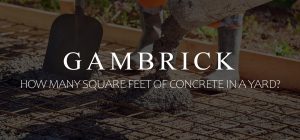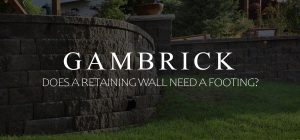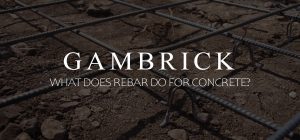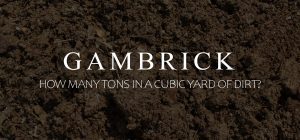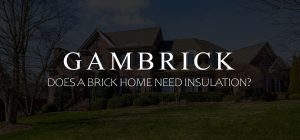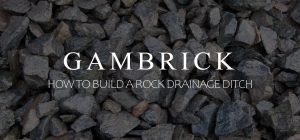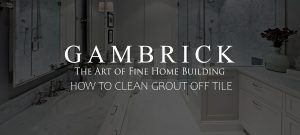Do Tiny Houses Appreciate In Value?
If you plan on investing money into buying or building anew tiny house then understanding the long term financial implications are important. Do tiny houses appreciate in value? Or do they depreciate over time? Are they good investments? What’s the long term value and ROI for a tiny house?
These are all great financial questions that come along with owning a tiny house. Even though a tiny house may be small, it’s still a sizeable investment. We’re a Custom Tiny Home Builder specializing in Modern Styles, Luxury Finishes and Extreme Energy Efficiency all the way up to a Passive House. Prices for our Tiny Homes average $100,000 – $200,000+. While that’s not nearly as much as buying or building a traditional home in New Jersey it’s still a lot of money. Lot’s of factors go into determining if your Tiny House will appreciate or depreciate over time. Things like your foundation, the style of the home, where you live and how your using the house are all important.
While it’s true most of the things that make any home appreciate or depreciate over time aren’t anything you can control. Stuff like the local economy, jobs, crime, schools, interest rates and the overall demand to live in your area are all totally out of your control. But there’s are still plenty of things that are like the condition of the home, size, design, style and any upgrades you’ve done.
In the article ahead we’ll discuss each factor in detail and help you make an informed financial decision on whether or not owning a Tiny House is right for you.
Types Of Tiny Houses
In order to answer the question do Tiny Houses appreciate in value you first have to understand the two main types of Tiny Houses. A Tiny House can either be built on a foundation, which is a permanent installation, or on wheels. The way these two forms appreciate or completely is totally different.
Tiny Houses On A Foundation Appreciate In Value
Some tiny houses are built on a permanent foundation just like a traditional house. That foundation can be a concrete slab, crawl space, full basement or pilings.
The foundation is built first and the tiny house can either be built on site or as a modular. Once it’s bolted to the foundation it’s typically left there permanently. One of the benefits of doing a permanent installation is that you typically own or lease the land and gain access to a septic system, sewer, water, grid power, gas and other utilities. You also gain the benefits of having your own land rights and an actual address.
Tiny Houses built on a permanent foundation appreciate just like a regular house. If homes in the area go up in value 10% then you tiny house will too.
Why Does A Tiny House With A Foundation Appreciate In Value?
When you build a tiny house on a permanent foundation it’s considered a regular house. Being tiny just refers to it’s size, but in every other way it’s just a house. Because it’s an actual house you gain access to things standard homes get. Some things that make a home appreciate are out of your control like the local economy, but some things, like upkeep and improvements are up to you.
Here are some of the most common benefits that will help your tiny home appreciate in value over time:
- Amenities. Access to all your standard utilities are a must have for most home buyers. Especially sewer or a septic system. Most people aren’t ready to deal with a compositing toilet, off grid solar or rain collection to gather water. Other amenities like gas, cable and internet are big pluses too. If you include these comforts then your home will rise in value.
- Address. Most buyers want a permanent address to call home. Without it your tiny house is technically considered an RV and not an actual house.
- Banks. When you have an address and a permanent foundation you’ll be able to deal with banks for things like a standard mortgage and a home equity loan. Most banks don’t consider a tiny house on wheels to be a house for the purposes of lending.
- Insurance. Homeowners insurance is much better and cheaper if you have a permanent home than if your living in a tiny house on wheels.
- Land. Owning the land is one of the biggest benefits to building permanent. Land appreciates in value over time which also increases the value of your home.
- Improvements.When the home is permanent you can make improvements that result in real value added to the home. That’s not really the case with an RV.
- Equity. If you get a mortgage to build a tiny house on a real foundation and on your land then you’ll gain equity over time as you pay it off.
What’s The Best Way make My Tiny Home Appreciate?
The best way to add value to your tiny house is more house. Upgrades and additions are the best way to add value to any home for that matter.
Tiny House Additions
Most homes in an area sell for a general price per sq. ft. based on the location, size of the land and the actual home. it’s a range not an exact price. For example in my local area homes generally sell any where from $350 – $750 per sq. ft. Lucky for you tiny homes tend to sell at the high end of the market in terms of sq. ft. prices because the land makes up a higher percentage of the total cost.
For example, let’s say your 350 sq. ft. tiny home is worth $200,000 which includes your land. That’s about $570 per sq. ft. Now let’s say you added another 50 sq. ft. onto the house. The value would be around $228,000. That’s an appreciation of $28,000. There few other ways you can add that kind of value to a tiny house. And it’ll be easier to sell too. Most buyers have a minimum sq. ft. they’re willing to live in unless they’re a fan of tiny houses.
But it’s not as simple as it may sound. Some additions are better at appreciating your home’s value than others. Adding another 50 sq. ft. to a living room will definitely add value, but not as much as a kitchen, bathroom, laundry or another bedroom will. With a tiny house, if you can add on another room with a dedicated purpose the home will appreciate more than if you just made the existing rooms bigger.
Land Improvements
One of the best things about building a tiny house on your own land with a permanent foundation is how you can improve the land. Here are a few great ways to add value to your tiny house without actually touching the house:
- Pool. This depends on where you live but in some cases a pool is almost mandatory. If your tiny house is in Southern California then a small pool is a great addition, but in Alaska it’s probably not going to add much value.
- Fence. Being able to fence in your backyard is one of the biggest benefits that come with having a yard and a permanent location.
- Driveway. A nice driveway is another advantage to owning land and something you won’t get if your tiny house is built on wheels.
- Patio / Deck. Out door living spaces are a fantastic way to add value to your tiny house. With space being so limited having a place to sit outside is such a huge plus. Especially if you build your home somewhere with a view. Outdoor living also comes in handy when you want to entertain.
- Outdoor Kitchen. Kitchens in a tiny house are tight so having a second kitchen that’s outside is really nice. Outdoor kitchens are a lot more than just a grill. They can include a small refrigerator, a sink, and even an oven.
- Shed. Any additional storage on the property will add value since there’s not much room inside for much of anything.
- Garage. A garage give you all the benefits of a shed and a lot more. A place with storage and a spot to park your car can be a big value add.
Can A Tiny House With A Foundation Depreciate Over Time?
Yes. When a tiny house is built on a permanent foundation it abides by the same rules as any other house. And that means it can lose value. Lots of factors affect home values including the economy, demand for real estate, interest rates and jobs in the area. Your home’s actual value is affected by a combination of local factors that can cause its value to depreciate. Some factors are within your control but most of them unfortunately aren’t.
Some of the most common reasons for depreciation are:
- Crime. If you build in an area that is falling in value overall due to crime then your house will get depreciated as well. Take this into consideration when you choose a place to build. Gambrick is a custom home builder so we know first hand how important choosing a location is for a home’s long term value.
- Repairs. Upkeep is just as important on a tiny home as it is on a large one. If you let you house get run down then that will be reflected in the sales price. However this is also a benefit if your looking to build equity. Buying a tiny home in need of repair and then making those repairs is a great way to make money.
- Location. Other things than crime can bring down local real estate values. The area you live in is very important in terms of ROI for any home. Bad schools or jobs moving away are other common reason why property value can drop.
- Foreclosures. It’s a bad sign when foreclosures start popping up all over your neighborhood. There’s really nothing you can do about it once the house is built so make sure you building an area with strong employment numbers and good local economy.
Tiny Houses On Trailers Don’t Appreciate In Value Long Term
Tiny house built on trailers, also called tiny houses on wheels, don’t appreciate in value over time like when they’re built on a foundation. Even though you consider them and possibly use them as a home, they’re not really considered real estate like a typical house.
Most tiny homes on wheels are considered an RV. You have to tow them around the back of a truck or other vehicle. because of that you don’t gain access to the benefits of owning a permanent home. RV sales are handled very different from real estate. Below we’ll discuss some of the biggest reasons why.
Why Don’t Tiny Homes On Trailers Appreciate In Value?
There are a few reasons why tiny houses on trailers don’t appreciate in value over time like a traditional home does. Here are some of the biggest:
- Land. When you build a tiny house on a trailer, and not permanently on land, it’s not considered real estate. Land is what’s really driving the appreciation of most homes and not the home itself. Since your on a trailer you don’t gain the benefits that come with land ownership. When you sell your home it won’t be listed in the MLS and it won’t be offered to the vast majority of potential home buyers.
- Volume. Because your tiny home won;t be sold as real estate, there won’t be nearly as many potential buyers. This may change over time as tiny homes gain in popularity, but for the time being, most people don’t want to tow their house. They want to live in one place on a piece of land with all the amenities that come with it.
- Wear. Wear and tear is a lot different for a tiny house on wheels than it is for a house on a foundation. Metal doesn’t last nearly as long as a concrete foundation and neither do wheels and tires.
- Foundation. The lack of a permanent foundation makes your tiny house technically an RV or mobile home to most people. And they depreciate just like cars over time.
One of the strengths of owning a tiny house is the freedom to move around whenever and wherever you like. But that’s also a weakness when it comes to long term value appreciation. It’s just a simple fact that owning a permanent residence with an address will appreciate in value and an RV won’t. Even though your using your tiny house on wheels as a house, it’s still not considered one by the majority of people looking to buy a home. Because of that they don’t increase in value over time.
What About If I Have A Tiny House On Wheels In A permanent Location?
This is an interesting question because it’s sort of a hybrid between the two designs and put’s you more into the category of a mobile home than an RV. But it really depends on where you put the tiny home.
- Your Own Land. If you own your own land and park your tiny home on it permanently with all the standard amenities like sewer or septic, electric, gas, cable and internet. Then you’ll get the most appreciation possible for a tiny house on wheels. This is really the ideal situation. While it’s not nearly as good as if you built on a foundation, it’s still better than every other alternative. And just like with a traditional home, the majority of your appreciated value will be in the land.
- Leased Land. If your leasing land then it gets tricky because it all depends on the terms of your lease. If you lock in an incredible lease deal with an optional buy out and land values increase in the area then you could see some nice appreciation as a result. However if your lease deal sucks then it may actually hurt your resale value. If your leasing land with the intent on living for a while then make sure you make a really good deal.
- Parks. Tiny houses in mobile home parks haven’t been so great in terms of appreciation. It’s still not a main stream accepted way of life in America. Although that is changing ever year, for the time being your much better off on your own land with a permanent set up. At least in terms of long term appreciation values. This is not only due to most people not wanting to live in a mobile home park, but also because you lose the possibility for improvements.
Can You Make Money Reselling Tiny Homes
Even though a tiny home will only appreciate long term if it’s built on a foundation does that mean you can’t make money building tiny homes on a trailer. Of course not. A tiny home is worth the exact amount someone is willing to pay for it. Most people aren’t willing to wait 4 months to a year to have a custom tiny home designed and built for them.
There’s a market out there for designing and building tiny homes in an area that’s cheap to build in and then reselling them in hot markets like California. We work with clients who do it and they’re making great money.One of the strengths of owning a tiny house on wheels is how easy they are to transport. If your willing to drive a tiny home from NJ out to California or arrange for it’s transportation you could easily gross $50 grand per home.
How is that possible? The markets and pay scales for just about everything is a lot less here than it is out there. Build an ultra energy efficient 350 sq. ft. modern tiny house here for $100 grand and then sell it in Southern California for $150K. The tiny house market is red hot in CA and supply is very low. While this technically isn’t considered long term appreciation it’s still a way to make money in the tiny house business.
What About Repairing Tiny Houses And Reselling Them
This is also not technically considered long term appreciation of a tiny house but it’s a great way to increase it’s value. And once it’s repaired you can transport and resell it in one of the hotter markets.
The reason it’s not appreciation is because repairs won’t increase it’s original value. But you can increase it’s value over what you paid with repairs or upgrades. For example, let’s say someone builds a tiny house for $50K. They live in it for a few years and sell it for $20K. You put $10K into it and then resell it for $45K. While this isn’t appreciation it’s still a great way to make money.
We recommend sticking to areas where tiny homes are easy to sell. In most areas it’s still not a popular or even legal way to live. But in others it’s totally legal and a great option since homes are very expensive and land is in short supply.
Location And The Tiny House Market
As with any home, your location and the overall housing market as well as things like interest rates and the economy all factor into your tiny houses appreciation over time. Most things just aren’t under your control. Here are a few things that matter:
- Demand. Your house will be in demand as more people switch to tiny house living. And if more people want to buy it then the price can go up. It’s very basic supply and demand. Most people don’t want to bother building a new one, so they buy used. It’s the same in the housing markets. Building a new home costs more and takes a long time. It’s just easier to buy an older one. And cheaper.
- Location. I’m not talking about where you park your tiny home but rather where you live. Some tiny house markets, like California, are much hotter than say Maine. If your in a hot market then you’ve got a good chance of appreciation. especially if you got a good deal on the house.
- Housing. The overall housing market is a factor as well. As houses get more expensive they become out of reach for some buyers. It’s one of the reasons we see a switch to tiny house living. The additional demand may increase your home’s value if people see it as the only affordable option.
- Local Laws. In some areas living in a tiny home is legal, and in others it’s not. Becoming a legal alternative can increase home values since it becomes an option for more potential buyers.
Is Tiny House Living A Fad?
It’s hard to say whether or not tiny house living is a fad. If it is, then your tiny house has much less of a chance to appreciate. Unless of course you built it on a permanent foundation on your own land. If that’s the case then you’ll gain value just like any other home as long as you can find a buyer willing to live in such a small space.
If you ask me, I don’t think it’s a fad. I think it’s a way of life that’s just getting started. As more and more people find out about it, and it becomes legal in more areas of the Country, people will keep making the switch.
It’s all about money. A traditional home is getting so expensive people are looking for a good alternative. Although most of them still want to live in one place. That’s why local government is so important. I’ve never seen a tiny home park open up that hasn’t been eventually filled with tiny homes and RVs. People definitely like living smaller, simpler and cheaper. But they also want to do it safely, legally and with the standard amenities of a home.
We’ll see if it turns out to be a passing fad. But my bet is that tiny living is here to stay.
Summary: Do Tiny Houses Appreciate In Value? Or Depreciate Over Time?
If you plan on investing money into buying or building a new tiny house then understanding the long term financial implications are important. Do tiny houses appreciate in value or do they depreciate over time? Are they good investments? What’s the long term value and ROI for a tiny house?
These are all great financial questions that come along with owning a tiny house. Even though a tiny house may be small, it’s still a sizeable investment. We’re a Custom Tiny Home Builder specializing in Modern Styles, Luxury Finishes and Extreme Energy Efficiency all the way up to a Passive House. Prices for our Tiny Homes average $100,000 – $200,000+. While that’s not nearly as much as buying or building a traditional home in New Jersey it’s still a lot of money. Lot’s of factors go into determining if your Tiny House will appreciate or depreciate over time. Things like your foundation, the style of the home, where you live and how your using the house are all important.
While it’s true most of the things that make any home appreciate or depreciate over time aren’t anything you can control. Stuff like the local economy, jobs, crime, schools, interest rates and the overall demand to live in your area are all totally out of your control. But there’s are still plenty of things that are like the condition of the home, size, design, style and any upgrades you’ve done.
I hope some of the information and pictures we’ve included help you design and build your next Tiny House.
If you have any questions or comments e-mail us any time. We’d love to hear from you.



